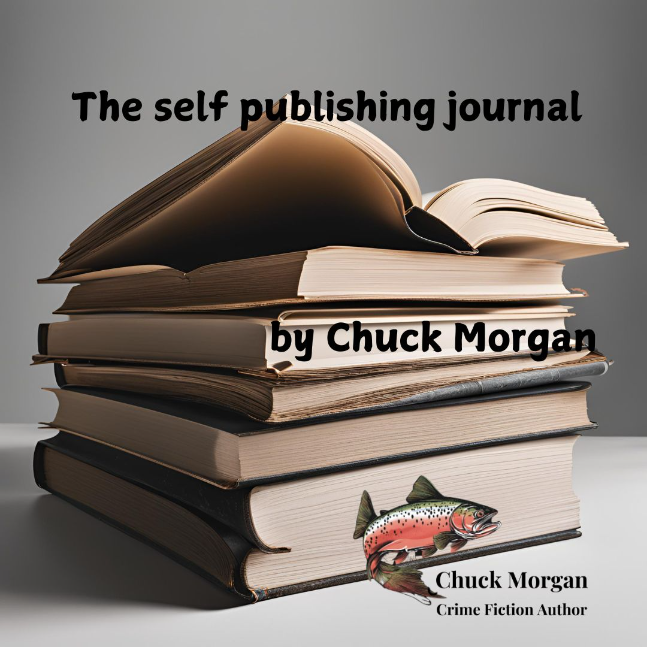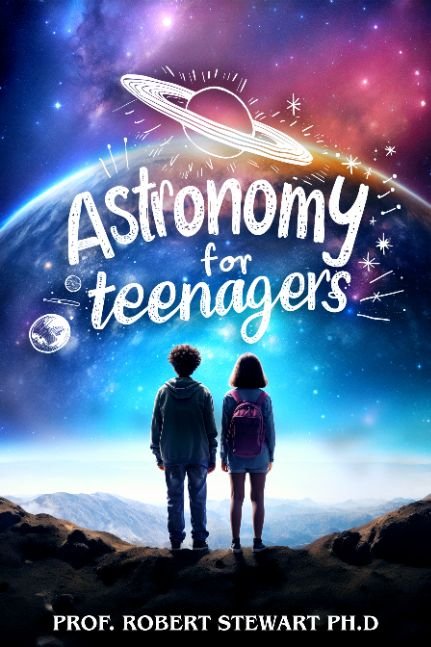- Home
- Articles
- Could Transforming Boredom into Curiosity End Writer’s Block Forever?
Could Transforming Boredom into Curiosity End Writer’s Block Forever?

Could Transforming Boredom into Curiosity End Writer’s Block Forever?
Chuck Morgan, Crime Fiction Author
Many writers experience the frustration of writer’s block, often feeling trapped in a cycle of boredom and stagnation. However, by transforming that boredom into curiosity, you can unlock new creative pathways and rejuvenate your writing process. This approach encourages you to explore different ideas and perspectives, turning mundane moments into opportunities for inspiration. In this post, you'll discover strategies to harness your curiosity and eliminate writer’s block for good, empowering you to produce more engaging and dynamic work.
Understanding Writer’s Block
Writer’s block is a common and frustrating phenomenon that affects many writers, regardless of their experience. It manifests as an inability to produce, connect ideas, or generate meaningful content. This mental barrier can stem from various sources, including fear of judgment, perfectionism, or lack of inspiration, leaving you feeling stuck and unproductive.
Definition and Causes
Writer’s block describes the condition where you feel unable to write. Common causes include external pressures like deadlines, internal factors such as self-doubt, or creative fatigue from intense writing periods. Environmental distractions may also play a role, making it hard for you to focus and find your rhythm.
Psychological Implications
The psychological implications of writer’s block can be significant. It may lead to increased anxiety, stress, and feelings of inadequacy. This emotional toll often reinforces the cycle of blockages, further deteriorating your confidence and motivation. You might find your passion for writing waning, which can create a rift in your creative process.
Feeling stuck can activate various stress responses, affecting not just your writing but your overall well-being. Research shows that chronic writer’s block can lead to depression or burnout, as the pressure to perform clashes with the writer's desire for creative expression. Understanding these implications helps you recognize the importance of addressing writer’s block proactively. Implementing strategies to manage emotional aspects can rejuvenate your creative spirit and restore your passion for writing.
The Role of Boredom in Creative Processes
Boredom often finds itself at the center of a writer's struggle, affecting creativity and motivation. While it may feel like a wall hindering your progress, understanding its role can transform this dullness into a powerful tool for creativity.
Boredom as a Barrier
Boredom can serve as a significant barrier, leading to stagnation in your writing. When you encounter monotony, it's easy to become disengaged, stifling inspiration and halting your ability to produce new ideas. This disconnect often results in frustration and self-doubt, making it more challenging to overcome creative hurdles.
Boredom as a Catalyst
Conversely, boredom can act as a catalyst for creativity. When your mind is not stimulated, it can lead to daydreaming and reflection, allowing innovative ideas to emerge. By embracing the lull, you create space for your subconscious to explore new concepts and unique narratives that spark interest.
When you experience boredom, your brain isn't actually idle; it's processing and synthesizing information in new ways. For instance, research shows that unstructured thinking can yield creative breakthroughs, like the way famous inventors, such as Nikola Tesla, took long solitary walks to encourage fresh perspectives. Letting your mind wander during periods of inactivity can help connect seemingly unrelated ideas, ultimately leading to rich storytelling and profound insights. This space for exploration can transform dull moments into fruitful creative opportunities. Embracing boredom allows for a natural flow of inspiration to materialize, breaking the chains of writer's block.
Curiosity: The Antidote to Boredom
Transforming your focus from boredom to curiosity creates a fertile ground for creativity. By embracing curiosity, you open doors to new perspectives, ideas, and inspirations that stimulate your mind and reignite your writing passion. Curiosity prompts you to explore unfamiliar topics, converse with diverse individuals, and engage with the world, ultimately leading to richer narratives and engaging content.
Benefits of Curiosity
Curiosity enhances cognitive flexibility, allowing you to think outside the box. It boosts problem-solving skills, helping you navigate challenges more effectively. Engaging with your curiosity invigorates your writing process, making it not just an obligation but an adventure. Studies show that curious individuals report higher levels of satisfaction and emotional well-being, resulting in a more joyful writing journey.
Strategies to Help Foster Curiosity
To cultivate curiosity, start by asking open-ended questions about your surroundings, ideas, and experiences. Engage in activities outside your comfort zone, such as attending workshops, exploring new genres, or taking up a new hobby. Setting aside dedicated time for research on topics of interest can also enhance your knowledge base and spark imaginative ideas that can enrich your writing.
Consider creating a curiosity journal where you can document intriguing questions and observations throughout your day. This practice not only reinforces your habit of inquiry but also generates a resource pool for inspiration. Seek conversations with experts in fields unrelated to your writing, as this exposure can ignite fresh ideas and perspectives. By immersing yourself in the curious mindset, you can break the chains of monotony and unlock a steady flow of creativity.
Transforming Boredom into Curiosity
To break free from the shackles of boredom, embrace curiosity as a powerful tool. When you allow yourself to explore new ideas, concepts, or even hobbies, you ignite the creative fire that can lead to fresh writing inspiration. Challenge yourself to ask questions about the mundane. What stories lie behind ordinary occurrences? By shifting your focus from mere observation to inquiry, you can uncover a wealth of content waiting to be articulated in your writing.
Techniques for Writers
Using specific techniques can enhance your ability to transform boredom into curiosity. Start by journaling daily, where you detail your observations and then question their significance. Engage in freewriting sessions where you let your thoughts flow without restriction; this can reveal interesting themes or angles. Taking part in activities outside of writing, such as visiting museums or taking walks, can also stimulate your imagination and lead to new insights for your projects.
Real-life Examples and Case Studies
Various case studies highlight how writers have successfully transformed boredom into curiosity, leading to productive outcomes. For instance, one survey showed that 76% of writers experienced a boost in creativity after exploring unrelated hobbies. A group of writers who practiced daily curiosity exercises reported an overall increase in their output of 50% within three months.
- A study of 100 writers showed that those who took part in curiosity workshops produced 40% more content in six weeks.
- In a survey of 200 freelancers, 80% stated that diversifying their daily activities enhanced their writing creativity significantly.
- Analysis from a writing group revealed that members who incorporated boredom-busting techniques felt less anxious about deadlines and improved their writing pace by 30%.
The impact of transforming boredom into curiosity can be profound, as illustrated by a group of authors who documented their experiences. After implementing curiosity-driven exercises, 65% reported breakthrough moments that led to the completion of long-stalled projects, while 50% of participants noted that their engagement with writing improved, suggesting a direct correlation between curiosity practices and writer satisfaction.
- In a 12-week creative writing program, participants experienced a 70% reduction in writer’s block symptoms when encouraged to engage with diverse intellectual pursuits.
- A longitudinal study found that writers who took time for mindful curiosity reported a 20% increase in the quality of their work as rated by peer reviews.
- A poll of 150 authors revealed that 90% found exploring new subjects enhanced their existing writing, leading to greater originality.
Practical Exercises for Writers
To effectively harness curiosity and overcome writer’s block, engaging in focused exercises can stimulate your creativity. Short and targeted activities can rekindle your passion for writing and provide fresh perspectives. These practical exercises span a variety of techniques, from freewriting to structured prompts, allowing you to explore different facets of your writing style and bolster your imaginative capacity. Each exercise will help you reclaim your narrative voice and inspire new ideas that may have seemed elusive.
Engaging with Curiosity
Begin by setting aside ten minutes a day to explore a random topic that piques your interest. Dive into articles, books, or documentaries and jot down three intriguing points. This practice encourages you to connect seemingly unrelated ideas and fuels your creative thoughts. Engaging with curiosity in this way transforms passive consumption of information into active inspiration for your writing projects.
Overcoming Creative Hurdles
Shift your mindset by scheduling deliberate breaks. When faced with writer’s block, embrace short periods away from your writing space to clear your mind. Engage in activities that spark joy, like walking or practicing mindfulness. Such shifts can recalibrate your thought process, resulting in unexpected bursts of inspiration. By allowing yourself these moments, you dismantle the pressure tied to productivity, fostering a more conducive environment for creativity.
Besides breaks, consider changing your writing location or routine. A new environment can stimulate your senses and present fresh viewpoints. Experiment with writing in a café, park, or library to disrupt monotony. You might discover new stories in the hustle of a busy café or the tranquility of a park bench. Joining writing groups or workshops can introduce collaborative elements that further expand your creative horizons while providing accountability. Each unique experience serves to ignite your creativity and guide you past the hurdles of writer’s block.
Long-term Strategies for Sustaining Creativity
Building a Creative Routine
Establish a daily writing schedule that works for you, ensuring consistency while allowing flexibility. This routine can include designated time slots for brainstorming, drafting, and revising, which can enhance productivity. Consider integrating warm-up exercises, like free writing or journaling, to ignite your creativity before plunging into your main projects. Many successful writers, such as Haruki Murakami and Maya Angelou, adhere to rigorous daily routines that include set hours solely dedicated to writing, helping them cultivate a fertile ground for ideas to flourish.
Embracing Lifelong Learning
Approach creativity as a continuous journey by engaging in lifelong learning. This mindset not only expands your knowledge base but also enriches your writing with diverse perspectives and experiences. Attend workshops, read widely across genres, and connect with fellow writers to share insights and discover new techniques. For example, taking a course on a subject outside your usual genre can spark innovative ideas and enhance your writing toolkit.
Engaging in lifelong learning can take many forms, from enrolling in online courses or attending creative writing retreats to simply exploring new hobbies. Delving into different subjects or crafts exposes you to various styles and techniques that you can incorporate into your writing. For instance, learning about photography can improve your descriptive skills, while studying history may inspire rich narratives. The more diverse your experiences and knowledge, the more dynamic and intriguing your writing will become, ultimately propelling your creative energy and combating writer’s block.
Conclusion
Summing up, transforming boredom into curiosity can serve as a powerful strategy to overcome writer’s block. By actively seeking new experiences and perspectives, you can stimulate your imagination and reignite your passion for writing. Embracing curiosity encourages exploration and experimentation, which ultimately fosters creativity. The key lies in shifting your mindset; when you view boredom as an opportunity for discovery, you open the door to new ideas and insights that can propel your writing forward.
https://chuckmorganbooks.com







